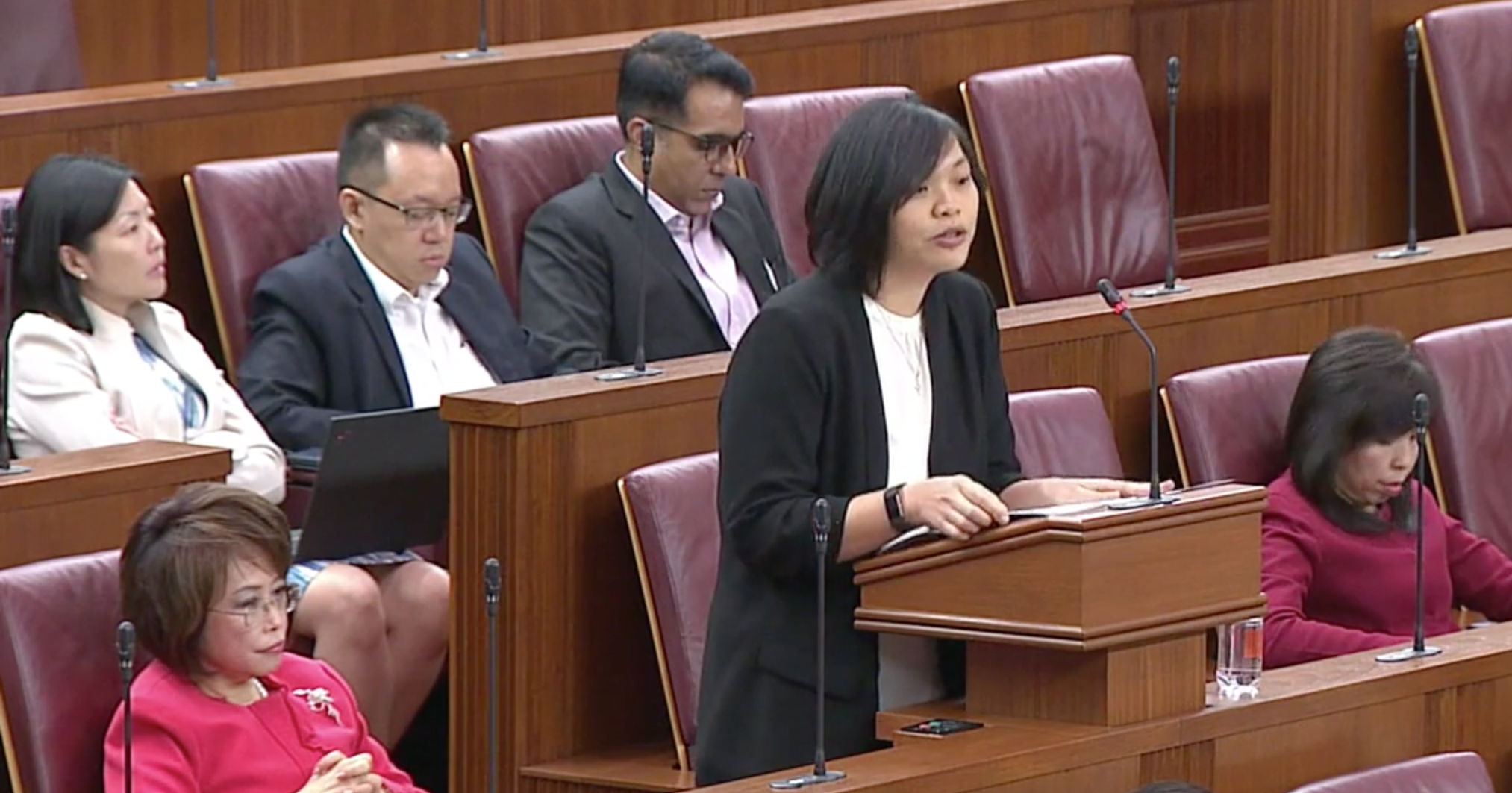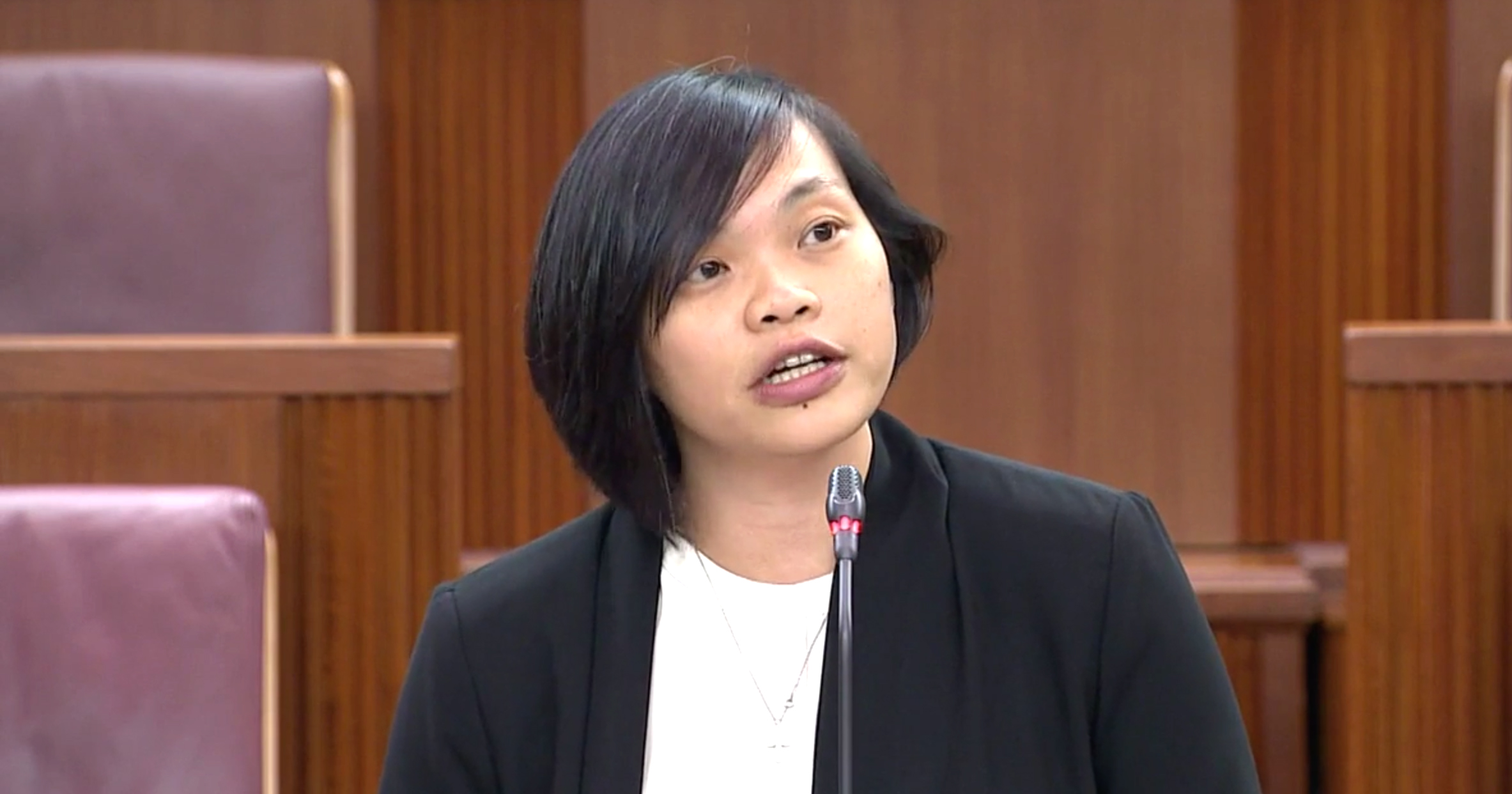Amidst the onslaught of numbers, estimates, and rabble of confusion that made up the 2018 Budget debate, Nominated Member of Parliament (NMP) Kuik Shiao-yin stepped in to offer a voice of reason in her speech, drawing our attention to the systemic kiasu-ness that is blinding our eyes to the people who need help the most right now.
But because it is potentially TL;DR, here's our summary of it for you:
1. Pragmatism vs. ideals
Kuik said pretty much what might be on some of our minds: that raising GST, instead of capital gains and wealth taxes, and capping the Net Investment Returns Contribution (NIRC) at 50 per cent of returns on investment, while long-sighted and prudent, fail to take into account the needs of the vulnerable both now and in the long-term.
"Every tilt towards the side of pragmatism is simultaneously a tilt away from the side of our ideals. I do not presume pragmatism to be bad and idealism to be good. Every healthy individual learns to hold both options in tension within their mental construct and make their choices.
But I believe our idealistic young professionals and students who make up both our current and future tax base have the right to question us: when will it ever be the right time to tilt our balance just a little more towards our ideals rather than always towards what’s pragmatic?
If not now, with our substantial surpluses and reserves, then when?
If not later, then are we saying never?"
 Screenshot via CNA video.
Screenshot via CNA video.
[related_story]
2. Growing reserves for growth's sake?
Drawing the analogy of a family saving for a rainy day, Kuik questioned the decision to prioritise accumulating our reserves (which some say are in excess) over taking bolder steps to meet the needs of Singaporeans living in the present:
"How do we decide when is a good time to tap into it to spend on our children now versus storing it up for them to use for their future children? We might say, well that really depends on how urgent are the needs of my children now, doesn’t it? Is it life or death? Is there a golden opportunity they need to seize?"
Echoing Aljunied GRC MP Pritam Singh and commentators like economist Donald Low, she argues that the heightened needs our country faces can be alleviated by spending more of our investment returns (more than 50 per cent), which wouldn't make such a painful dent since our reserves are still growing (they currently stand at more than a trillion dollars, FYI). The choice, she puts pointedly, is between believing in growing our reserves faster or slightly slower.
She also notes that the International Monetary Fund assesses Singapore's foreign exchange reserves to be "excessively prudent" — while the IMF says having reserves of 27 per cent (S$113 billion) of GDP is good enough, the amount held by the Monetary Authority of Singapore alone is S$369 billion, or 88 per cent, of our GDP — three times the recommendation.
Kuik concludes this point by urging the government to help young taxpayers understand why they are acting this way, essentially — because right now it looks to some like they're growing our reserves for growth's sake, and have possibly lost the plot on why we're squirrelling away so much of what we make from investments.
3. Addressing the class divide & questioning SG Bonus amid future GST hike
Kuik cited a recent Institute of Policy Studies (IPS) survey in her speech, too. It revealed that class is one of the major social divides today, with more than half of respondents scoring a low rating of 0 when it came to having ties with people from different housing types and educational status.
She said this finding is entirely unsurprising for the Foodpanda courier who stands in the doorway and hands over food to the teenager who ordered it from his iPhone X, for instance, and for the intern who can't afford to join her colleagues for lunch because what they regard as cheap isn't quite for her.
Turning to the decision to share part of our one-off S$9.6 billion surplus with Singaporeans rich and poor with the SG Bonus, Kuik said youths of lower-income will know it is a short-term, one-off help that will not provide deep satisfaction — meanwhile, those who are wealthy may not even notice it for the "chump change" it is for them.
"For the short-term and disproportionate impact they have, ad-hoc packages aren’t cheap. $700 million is a substantial sum that could have gone into, say, MSF programmes that focus on making more significant, long-term difference. Are our well-intended ad-hoc transfers drawing resources and attention away from dealing with challenges in a more sustained and structured manner?"
Kuik also related the story of a 19-year-old Singaporean girl who survived on bread and treats from friends while studying and went on to do well in school in spite of her setbacks.
"I share her story to have us first, recognise not just her amazing achievement but her mother’s as well, as individuals beating the odds. But second, to consider all the multiple points in her story where we would have wanted the system to come alongside mother and child to aid their heroic journey."
To folks like the girl, the Foodpanda courier and the intern, short term payouts are just that -- fleeting and not enough to make a lasting change.
Perhaps, concludes Kuik, if we can see that our rifts of inequality run deeper and more severe than we realised, more lasting change can be effected right now, if we stop overestimating what we really need for the future.
More stories on the Budget:
Top photo: Screenshot of gov.sg YouTube video
If you like what you read, follow us on Facebook, Instagram, Twitter and Telegram to get the latest updates.
